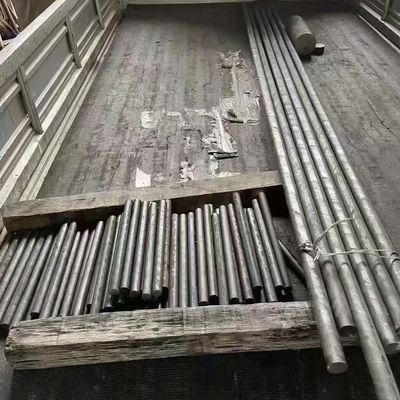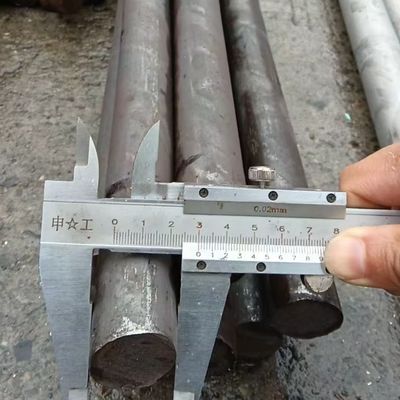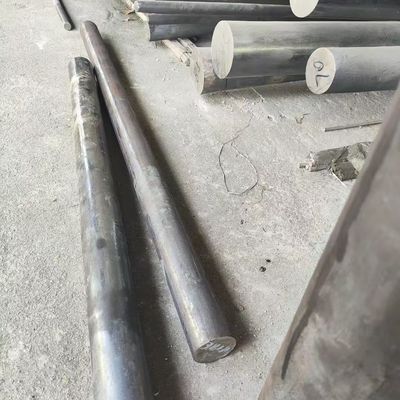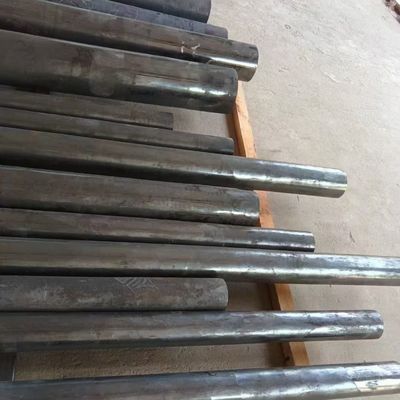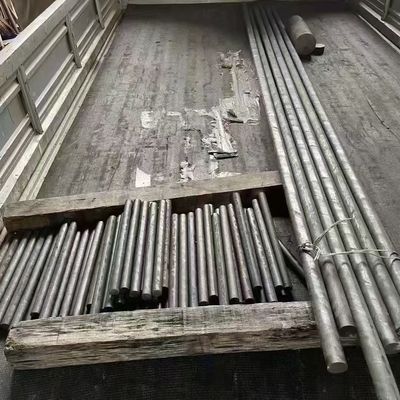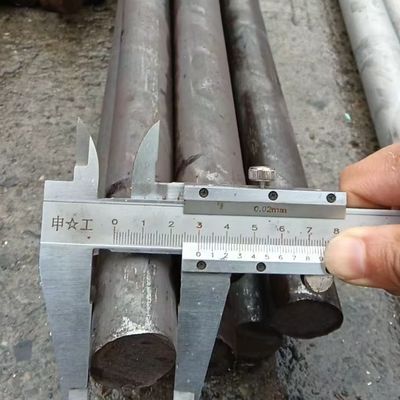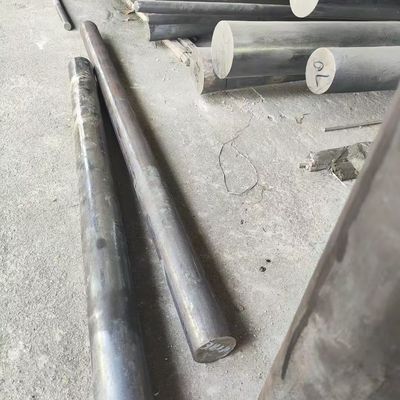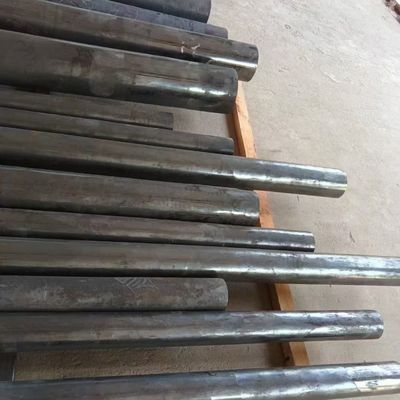Alle Produkte
-
 Raian IonescuMaterielle Qualität sehr gut. wir haben, zusammenzuarbeiten mehr als 10 Jahre. Sie handeln Losarten des Stahlmaterials. Alle materielle Qualitätsware. Sie Aufgabe für alle materielle Qualität. Wir planieren fortzufahren, mit ihnen in der Zukunft zusammenzuarbeiten
Raian IonescuMaterielle Qualität sehr gut. wir haben, zusammenzuarbeiten mehr als 10 Jahre. Sie handeln Losarten des Stahlmaterials. Alle materielle Qualitätsware. Sie Aufgabe für alle materielle Qualität. Wir planieren fortzufahren, mit ihnen in der Zukunft zusammenzuarbeiten
ASTM EN DIN GB Standard UNS N06625 / Alloy 625 Round Bar Black Bar and Bright Bars
| Herkunftsort | CHINA |
|---|---|
| Markenname | DELTA |
| Zertifizierung | ISO |
| Modellnummer | Inkonel 625 |
| Min Bestellmenge | 10 kg |
| Preis | 20 - 35 USD/Kg |
| Verpackung Informationen | Standardverpackung für den Exportieren |
| Lieferzeit | 5 - 12 Tage basierend auf der Menge |
| Zahlungsbedingungen | L/C, T/T, Western Union |
| Versorgungsmaterial-Fähigkeit | 3 Tonnen pro Woche |
Produktdetails
| Produkte | Inconel 625 Rundeisen | Grad | Inkonel 625 |
|---|---|---|---|
| Durchmesser | 10 - 350mm | Länge | Auf Wunsch beliebige Schnittlängen |
| Standard | ASTM EN | Service | Schneiden |
| Ladeanschluss | Shanghai Hafen | Oberfläche | Schwarz, hell |
| Hervorheben | ASTM Alloy 625 round bar,UNS N06625 bright bars,Nickel alloy black bars |
||
Produkt-Beschreibung
Products Specification
|
Standard
|
AISI, ASTM, BS, DIN, GB, JIS
|
||
|
Grade
|
Monel series: 400 K500
Inconel series: 600 601 625 718 725 Incoloy series: 800 800H 825 925 Hastelloy series: B,B2,B3,C,C-276,C-4,C-22 Pure: Ni200, Ni201 |
||
|
Specifications
|
Round bar
|
Diameter:4~300mm
|
|
|
Flat bar
|
Thickness
|
1.0~100mm
|
|
|
Width
|
1~1500mm
|
||
|
Square bar
|
Size: 4*4-100*100mm
|
||
|
Length
|
2m, 5.8m, 6m, or as required.
|
||
|
Surface
|
Black, peeled, polishing, bright, sand blast, hair line, etc.
|
||
|
Price Term
|
Ex-work, FOB, CFR, CIF, etc.
|
||
|
Delivery Time
|
Standard size is in stock,prompt delivery or as order's quantity.
|
||
Introduction
In the industrial materials landscape, the UNS N06625 nickel alloy round bar stands as a paragon of high - performance materials. Its wide - ranging applications across aerospace, marine, chemical, and other industries are a testament to its remarkable properties. From enduring the extreme conditions in aircraft engines to maintaining structural integrity in corrosive chemical processing plants, this alloy has proven to be indispensable. This article delves deep into the chemical composition, mechanical properties, equivalent grades, product standards, advantages, and applications of the UNS N06625 nickel alloy round bar, both in black bar and bright bar forms, aiming to provide a comprehensive understanding of this remarkable material.
Chemical Composition
Main Elements
- Nickel (Ni): Nickel is the base element of UNS N06625, with a content of at least 58%. Nickel imparts excellent corrosion resistance, especially in reducing environments. It also contributes to the alloy's high - temperature strength and good toughness, allowing the alloy to maintain its mechanical properties at elevated temperatures. For example, in high - temperature chemical processing, nickel helps the alloy resist attack from various corrosive media.
- Chromium (Cr): The chromium content in UNS N06625 ranges from 20.0% to 23.0%. Chromium is crucial for forming a dense and adherent chromium - oxide film on the alloy surface. This film provides outstanding oxidation resistance, protecting the alloy from high - temperature oxidation and many corrosive substances. In applications such as in the aerospace industry, where components are exposed to high - temperature and oxidative environments, this chromium - induced protection is essential.
- Molybdenum (Mo): With a content of 8.0% - 10.0%, molybdenum significantly enhances the alloy's resistance to pitting and crevice corrosion, especially in chloride - containing environments. It also improves the alloy's strength at elevated temperatures. In marine applications, where seawater contains high levels of chlorides, the presence of molybdenum in the alloy ensures long - term durability.
- Niobium (Nb) (plus Tantalum (Ta) when present): The combined content of niobium and tantalum (usually niobium is the main component, with a content of 3.15% - 4.15%) is important for precipitation strengthening. Niobium forms fine carbide particles during heat treatment, which enhance the alloy's strength, especially at high temperatures. This is beneficial in applications like gas turbines, where components need to withstand high - temperature and high - stress conditions.
Minor Elements
- Carbon (C): The carbon content is limited to a maximum of 0.10%. Excessive carbon can form carbides, which may reduce the alloy's corrosion resistance, especially in sensitization - prone environments. By keeping the carbon content low, the alloy can maintain its excellent corrosion - resistant properties during welding and in service.
- Silicon (Si) and Manganese (Mn): Silicon content is typically limited to a maximum of 0.50%, and manganese content is also capped at 0.50%. These elements play a role in the deoxidation process during alloy production. While they are present in small amounts, an excessive increase in their content could potentially affect the alloy's mechanical and corrosion - resistant properties. For example, too much silicon might cause brittleness in certain circumstances.
- Phosphorus (P) and Sulfur (S): Phosphorus content is restricted to a maximum of 0.015%, and sulfur content to a maximum of 0.015%. These elements are considered impurities. High levels of phosphorus and sulfur can lead to reduced ductility and an increased susceptibility to hot cracking during processing. In extreme cases, they can also negatively impact the alloy's corrosion resistance.
Mechanical Properties
Tensile Strength
The tensile strength of UNS N06625 nickel alloy round bar at room temperature is typically around 830 MPa (120,000 psi). This high tensile strength is crucial in many applications. In the aerospace industry, for instance, components like aircraft engine parts are subjected to extreme mechanical stresses during flight. The high tensile strength of UNS N06625 ensures that these parts can withstand the centrifugal forces, vibration, and thermal stresses without breaking, thus maintaining the structural integrity of the engine and ensuring the safety of the flight. In the construction of high - pressure pipelines in the oil and gas industry, the alloy's high tensile strength allows the pipelines to resist the internal pressure of the transported fluids, preventing leaks and ensuring the efficient transportation of oil and gas.
Yield Strength
The yield strength of UNS N06625 at room temperature is approximately 415 MPa (60,000 psi). Yield strength represents the stress at which the material begins to deform plastically. A relatively high yield strength means that the alloy can resist a significant amount of stress before permanent deformation occurs. In marine applications, where structures such as offshore platforms are constantly under the influence of waves, tides, and the weight of the equipment on them, the high yield strength of UNS N06625 enables these structures to maintain their shape and dimensions over long periods. This is essential for the safety and long - term operation of the platforms, as any significant deformation could lead to structural failure.
Elongation
The elongation of UNS N06625 nickel alloy is around 30%. Elongation is a measure of the material's ductility, which is closely related to its toughness and processing properties. A high elongation value indicates good toughness, meaning the alloy can absorb a large amount of energy before fracturing. This is beneficial in applications where the material may be subjected to sudden impacts or dynamic loads, such as in the manufacturing of shock - absorbing components in machinery. In terms of processing, the good elongation property allows the alloy to be easily formed into various shapes through processes like forging, rolling, and extrusion. For example, during forging, the alloy can be deformed into complex shapes without cracking, enabling the production of high - quality components with precise geometries.
Hardness
The hardness of UNS N06625 is generally in the range of HB 200 - 250 (Brinell hardness). This moderate hardness level gives the alloy good wear resistance. In applications where the material is in contact with other surfaces in relative motion, such as in bearings or seals in chemical processing pumps, the hardness helps to prevent excessive wear, ensuring a long service life. At the same time, the moderate hardness also makes the alloy amenable to machining. It can be easily cut, drilled, and milled to the required dimensions and tolerances, which is important for manufacturing components with tight specifications in industries like precision engineering.
Equivalent Grades
- Inconel 625: This is perhaps the most well - known equivalent grade for UNS N06625. Inconel 625 is a trademarked name by Special Metals Corporation. It is widely recognized in the global market, especially in the aerospace and high - end manufacturing industries. The use of Inconel 625 in these industries has led to its high - profile status, and many engineers and designers are more familiar with this name when specifying materials for projects. For example, in the design of aircraft engine components, the name Inconel 625 might be more commonly used in the initial material selection phase.
- 2.4856 (DIN Standard): In the German and European context, the number 2.4856 is used to identify this alloy according to the DIN standard. This numerical designation is part of the German standardization system for materials, which is widely used in European manufacturing, particularly in the automotive, machinery, and chemical engineering industries. When sourcing materials in Europe or dealing with European - based suppliers, the 2.4856 designation becomes crucial. It ensures that the correct alloy is specified and supplied, adhering to the strict quality and composition requirements of the DIN standard.
- NC22DNb (AFNOR Standard): In France, the alloy is known as NC22DNb under the AFNOR (Association Française de Normalisation) standard. This grade is used in various French and francophone industrial applications, such as in the oil and gas exploration and production projects in French - speaking regions. Understanding this equivalent grade is essential for companies operating in these areas or collaborating with French - based partners in the energy and related sectors.
- GH3625 (Chinese Standard): In China, GH3625 is the corresponding grade for UNS N06625. The Chinese market has a large demand for high - performance alloys in industries like aerospace, power generation, and petrochemicals. GH3625 is produced and used in China, following the Chinese national standards. Chinese manufacturers and end - users often refer to this grade when specifying materials for their domestic projects.
Knowing these equivalent grades is extremely important in material procurement and substitution. In the global market, different suppliers may use different naming systems. When a company needs to source UNS N06625 nickel alloy round bars, being aware of the equivalent grades allows it to communicate effectively with suppliers from different regions. For example, a company in the United States may find a more cost - effective supplier in Europe. By knowing the DIN - equivalent grade 2.4856, they can accurately request the correct material. In terms of substitution, if a particular grade is not available or has long lead times, understanding the equivalent grades helps in finding suitable alternatives that meet the project's requirements in terms of chemical composition, mechanical properties, and product standards.
Product Standards
ASTM Standards
ASTM (American Society for Testing and Materials) has several standards relevant to UNS N06625 nickel alloy round bars. For example, ASTM B446 covers the standard specification for nickel - chromium - molybdenum alloy (UNS N06625) rod and bar. This standard precisely defines the dimensions, tolerances, and mechanical property requirements of the round bars. In terms of dimensions, it specifies the allowable diameter ranges and length tolerances, ensuring that the products are of a consistent size for various applications. For mechanical properties, it sets minimum requirements for tensile strength, yield strength, and elongation, guaranteeing that the alloy bars can withstand the mechanical stresses expected in their intended applications. Products meeting ASTM standards are widely recognized and accepted in the American market and are often specified in industries such as aerospace, oil and gas, and chemical processing in the United States.
EN and DIN Standards
In Europe, the EN (European Norm) and DIN (Deutsches Institut für Normung) standards play a crucial role. The EN standards for UNS N06625 nickel alloy round bars focus on aspects such as chemical composition control, mechanical property verification, and quality management during production. They ensure that the alloy's chemical composition adheres strictly to the specified ranges, which is essential for maintaining its corrosion - resistant and mechanical properties. The DIN standards, on the other hand, are more detailed in some areas, such as heat treatment requirements and surface quality inspection methods. For example, DIN standards may specify the exact heat treatment processes, including temperature, time, and cooling rates, to achieve the desired microstructure and mechanical properties. European - made UNS N06625 round bars that comply with these standards are highly regarded for their quality and reliability, and they are commonly used in European - based industrial projects, especially in the automotive, machinery manufacturing, and energy sectors. These standards also take into account environmental and safety aspects, ensuring that the production and use of the alloy bars are in line with European environmental protection and safety regulations.
GB Standards
In China, the GB (Guobiao, national standard) for UNS N06625 nickel alloy round bars (corresponding to the Chinese grade GH3625) sets out the technical requirements for the alloy. It includes requirements for chemical composition, which must meet the specified ranges to ensure the alloy's performance. The mechanical property requirements in the GB standard are also clearly defined, covering aspects such as tensile strength, yield strength, and hardness. Additionally, the standard addresses inspection and testing methods, packaging, marking, and storage requirements. Products that meet the GB standards are well - suited for the domestic market in China, as they are produced in accordance with local industry needs and regulations. In the Chinese aerospace, petrochemical, and power generation industries, where high - performance materials are required, GB - compliant UNS N06625 round bars are often preferred due to their quality assurance and local availability.
Product Advantages
Corrosion Resistance
UNS N06625 nickel alloy round bars exhibit outstanding corrosion resistance in a wide range of corrosive environments. In the chemical industry, where exposure to strong acids, alkalis, and various chemical reagents is common, this alloy can withstand the corrosive effects of substances such as sulfuric acid, hydrochloric acid, and sodium hydroxide. For example, in chemical reactors and storage tanks, the alloy's corrosion - resistant properties ensure that the equipment can operate safely for long periods without the risk of leakage or structural failure due to corrosion. In marine engineering, the high chloride content in seawater poses a great challenge to the materials used. UNS N06625 can resist pitting and crevice corrosion caused by chlorides, making it an ideal choice for components such as ship hulls, offshore platform structures, and seawater pipelines. Its ability to resist corrosion in marine environments significantly extends the service life of these structures, reducing maintenance and replacement costs.
High - Temperature Performance
One of the remarkable features of UNS N06625 is its excellent high - temperature performance. At elevated temperatures, it can maintain high strength and stability. In the aerospace industry, components like turbine blades and combustion chambers in aircraft engines are exposed to extremely high temperatures during operation. The high - temperature strength of UNS N06625 allows these components to withstand the thermal stresses and mechanical loads, ensuring the efficient operation of the engine. In the energy sector, such as in power plants, boilers, and gas turbines, the alloy can endure high - temperature flue gases and steam, contributing to the reliable operation of power - generation equipment. Even at temperatures up to 800°C, UNS N06625 still retains a significant portion of its room - temperature strength, which is crucial for applications in high - temperature environments where structural integrity must be maintained.
Weldability and Machinability
UNS N06625 nickel alloy round bars have good weldability, which is of great significance in manufacturing processes. Welding is a common method for joining components in various industries. The good weldability of this alloy means that it can be easily welded to other parts without significant issues such as cracking or porosity in the weld joints. This reduces the complexity and cost of manufacturing complex structures. For example, in the construction of large - scale chemical processing plants, where many pipes and vessels need to be joined, the good weldability of UNS N06625 enables efficient construction and ensures the integrity of the welded structures. In terms of machinability, the alloy can be readily processed using common machining techniques such as turning, milling, and drilling. This allows manufacturers to produce components with high precision and complex geometries, meeting the strict requirements of different industries. Good machinability also increases production efficiency, as it reduces the time and effort required for machining operations, ultimately leading to cost savings in the manufacturing process.
Product Applications
Aerospace Industry
In the aerospace industry, UNS N06625 nickel alloy round bars play a crucial role. For aircraft engine components, such as turbine blades, the high - temperature strength and corrosion resistance of UNS N06625 are essential. Turbine blades are exposed to extremely high - temperature gas streams during engine operation, often reaching temperatures well above 500°C. The alloy's ability to maintain its mechanical properties at these high temperatures ensures that the blades can withstand the centrifugal forces and thermal stresses without deforming or failing. This is directly related to flight safety, as any failure of the turbine blades could lead to engine malfunction and potentially a catastrophic accident. In addition, for aircraft structural components like wing spars and fuselage frames, the high strength - to - weight ratio of UNS N06625 is beneficial. It allows for the construction of lighter yet stronger structures, which in turn improves fuel efficiency and increases the aircraft's payload capacity. The alloy's corrosion resistance also protects these components from the corrosive effects of environmental factors such as moisture and pollutants in the atmosphere, ensuring the long - term integrity of the aircraft structure.
Petrochemical Industry
In the petrochemical industry, UNS N06625 nickel alloy round bars are widely used in the manufacturing of pipelines, reaction vessels, and valves. Pipelines in petrochemical plants often transport highly corrosive substances such as crude oil, refined fuels, and various chemical reagents. The excellent corrosion resistance of UNS N06625 ensures that the pipelines can operate safely for long periods without suffering from leaks or failures due to corrosion. For example, in pipelines that carry sulfur - containing crude oil, the alloy can resist the corrosion caused by sulfur compounds, which are highly corrosive in the presence of moisture. Reaction vessels, which are used for chemical reactions under high - temperature and high - pressure conditions, require materials with high strength and corrosion resistance. UNS N06625 meets these requirements, allowing the vessels to maintain their structural integrity during the reaction processes. Valves in petrochemical plants need to be able to withstand the corrosive media and high - pressure flows. The use of UNS N06625 in valve manufacturing ensures smooth operation and long - term reliability, which is crucial for the stable operation of the entire petrochemical production process. Any disruption in the pipeline, reaction vessel, or valve system could lead to production downtime, which is not only costly but also potentially dangerous due to the release of harmful chemicals.
Marine Engineering
In marine engineering, the high chloride content in seawater poses a significant challenge to the materials used. UNS N06625 nickel alloy round bars are highly valued for their outstanding resistance to seawater corrosion. For offshore platforms, which are constantly exposed to seawater, wind, and wave forces, the alloy is used in the construction of structural components such as support columns and decks. Its high strength and corrosion resistance enable the platforms to withstand the harsh marine environment and the mechanical stresses caused by the movement of the sea. This ensures the long - term stability and safety of the platforms, which are essential for the extraction of offshore oil and gas resources. In shipbuilding, UNS N06625 is used for manufacturing components such as propeller shafts, rudder components, and seawater - handling systems. Propeller shafts need to have high strength to transmit the power from the engine to the propellers and also need to resist the corrosive effects of seawater. The use of UNS N06625 in these applications significantly extends the service life of the components, reduces maintenance costs, and improves the overall performance and reliability of the ships.
Other Fields
- Energy Field: In the energy field, especially in nuclear power plants, UNS N06625 nickel alloy round bars are used in the manufacturing of components such as reactor internals and heat exchanger tubes. In nuclear reactors, the components are exposed to high - temperature, high - pressure, and highly radioactive environments. The alloy's high - temperature strength, corrosion resistance, and radiation resistance make it suitable for these applications. Heat exchanger tubes need to transfer heat efficiently while resisting corrosion from the coolant. UNS N06625 ensures the reliable operation of the heat exchangers, which is crucial for the safe and efficient generation of nuclear power.
- Medical Field: In the medical field, UNS N06625 is used in the manufacturing of certain medical devices. For example, in some implantable devices that require high - strength and biocompatible materials, the alloy's properties make it a viable option. Its corrosion resistance ensures that the device does not corrode in the human body, and its mechanical strength allows it to maintain its shape and function over time. Although the use in the medical field is relatively limited compared to other industries, it still plays an important role in the development of advanced medical technologies, contributing to better medical treatment and patient care.
Conclusion
UNS N06625 nickel alloy round bars, in both black bar and bright bar forms, are a remarkable class of materials. Their carefully - balanced chemical composition, featuring high nickel, chromium, molybdenum, and niobium contents, endows them with outstanding corrosion resistance, high - temperature strength, and good toughness. The mechanical properties, such as high tensile and yield strengths, decent elongation, and moderate hardness, make them suitable for a wide range of applications. The existence of multiple equivalent grades under different standards and the compliance with various product standards (ASTM, EN/DIN, GB) ensure their availability and quality control in the global market.
The product advantages of UNS N06625, including excellent corrosion resistance, high - temperature performance, and good weldability and machinability, have led to their extensive use in critical industries like aerospace, petrochemical, and marine engineering. As industries continue to evolve and demand materials that can withstand more extreme conditions, UNS N06625 nickel alloy round bars are expected to play an even more significant role. With the continuous development of manufacturing and processing technologies, it is likely that the performance of these alloy round bars will be further optimized, opening up new application possibilities in emerging fields such as advanced energy technologies and high - tech manufacturing.
Empfohlene Produkte



